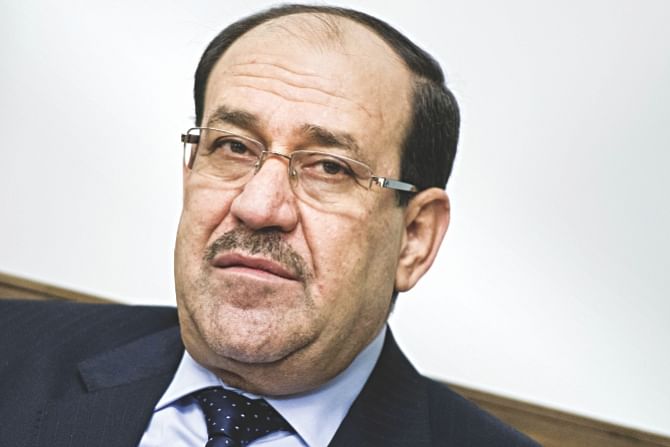Maliki bows out as Iraqi PM

Iraqis and foreign powers voiced relief yesterday after Prime Minister Nuri al-Maliki agreed to step down, as the UN targeted Islamist militants and the EU backed the arming of their Kurdish rivals.
As aid groups tried to cope with the hundreds of thousands of people displaced by Islamist advances in northern Iraq, ingredients of a fightback began falling into place.
In New York, the UN Security Council unanimously adopted a resolution aimed at weakening Islamists in Iraq and Syria by cutting off funding and the flow of foreign fighters.
And EU ministers agreed at an emergency meeting in Brussels to back the arming of Iraqi Kurdish fighters.
The ministers said they welcomed "the decision by individual member states to respond positively to the call by the Kurdish regional authorities to provide urgently military material".
On Maliki's decision to step down, US National Security Adviser Susan Rice said it was "another major step forward" in uniting Iraq.
UN chief Ban Ki-moon also welcomed the move and called for the swift formation of "an inclusive, broad-based government ready to immediately tackle these pressing issues".
Support for Maliki's designated replacement, Haidar al-Abadi, has poured in from sources as diverse as Iran and Saudi Arabia.
When jihadist forces launched a major offensive on June 9, Kurdish peshmerga forces initially fared better than retreating federal soldiers, but the abandoned US-made weaponry government troops left in their wake turned IS into a formidable foe.
Jihadists advanced within miles of autonomous Iraqi Kurdistan last week, which was one of the factors that triggered US air strikes and broad foreign support for the cash-strapped Kurds.
Maliki's critics say he bears some of the responsibility for the crisis that brought the country to the brink of breakup for pushing sectarian policies that have marginalised and radicalised the Sunni Arab minority.
In another potentially game-changing development, 25 Sunni tribes in the western Anbar province, including some that had previously refused to work with a Maliki-led government, announced a coordinated effort to oust IS fighters.
US President Barack Obama said a first week of air strikes had broken the siege of a northern mountain where civilians had been hiding from jihadists for more than 10 days.
The ordeal of tens of thousands of people, mostly from the Yazidi minority, was one of the most dramatic chapters of the devastating two-month conflict and another reason Obama ordered air strikes in Iraq, three years after pulling his troops out.
"We helped save many innocent lives," Obama said.
According to the Pentagon, there are still up to 5,000 people on Mount Sinjar, but some of them live on the mountain and may not want to leave.

 For all latest news, follow The Daily Star's Google News channel.
For all latest news, follow The Daily Star's Google News channel. 




Comments